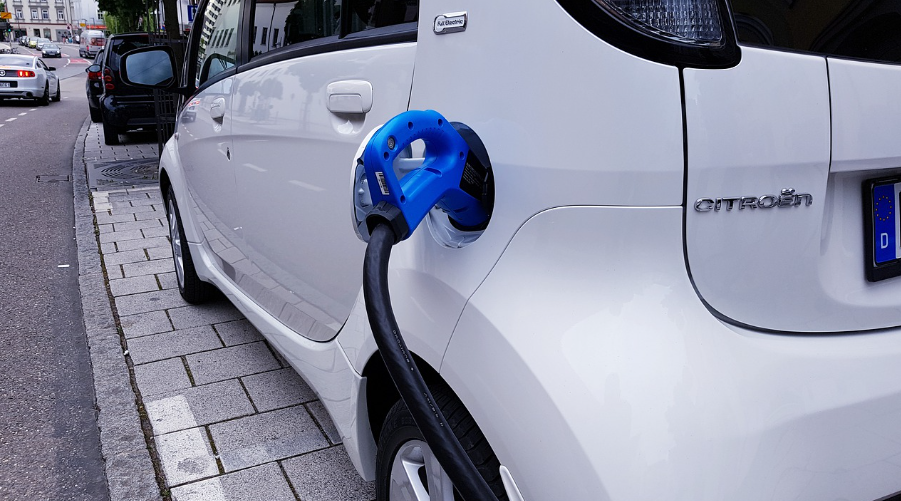
Ethiopia Bans Gas Cars
Ethiopia bans gas-powered private vehicles, leading Africa’s charge toward electric cars despite infrastructure and affordability challenges.
In a historic move, Ethiopia recently became the first country to ban the import of gas-powered private vehicles, committing to an ambitious shift toward electric vehicles (EVs). This groundbreaking decision is a critical part of Ethiopia’s broader climate agenda to reduce reliance on fossil fuels, lower carbon emissions, and boost energy independence. The transition, while forward-thinking, is not without challenges. From infrastructure limitations to consumer hesitancy, Ethiopia’s journey toward an all-electric fleet highlights the complexities of moving away from gasoline in a developing nation.
The Push for Electric Vehicles in Ethiopia
Ethiopia’s ban on gas-powered vehicles stems from a growing desire to address environmental issues and manage fuel costs, as well as an urgent need to save foreign exchange spent on fuel subsidies. To support this transition, the government has set ambitious targets, aiming to import around 100,000 EVs each month, with hopes to increase this number to 500,000 by 2030. The Grand Ethiopian Renaissance Dam, a mega-project on the Nile River, is expected to produce over 5,000 megawatts of clean energy upon completion, which would significantly power the country’s electric grid and aid the transition to EVs.
Challenges in Infrastructure and Affordability
Despite the positive outlook, Ethiopia faces numerous logistical challenges in realizing its vision. Charging infrastructure remains sparse, especially outside Addis Ababa, where many EV owners have trouble finding charging stations. Dereje Hailu, a civil servant who recently bought an EV, speaks to these struggles: “Charging my car has been a challenge,” he says, noting that power cuts and long lines at limited charging stations are common.
In addition, the cost of EVs remains a barrier. Though the prices for EVs are declining globally, in Ethiopia, they are still significantly higher than the price of used gas-powered cars, which many Ethiopians rely on. Furthermore, spare parts are often imported, leading to inflated prices and long wait times for maintenance. With EV mechanics in short supply, many drivers like Hailu are hesitant about the longevity of their new electric investments.
Real-World Implications and User Experiences
The transition to electric vehicles has had varying impacts across different social groups in Ethiopia. For instance, Awgachew Seleshi, a taxi driver in Addis Ababa, bought an electric car amid soaring fuel prices, hoping to save on fuel expenses. However, after encountering frequent mechanical issues and paying high maintenance costs, he sold his EV and reverted to a gasoline car, a 2007 Toyota Corolla, which he felt was more reliable. This highlights a common sentiment among Ethiopian drivers who, despite the environmental benefits, find EVs impractical in the current infrastructure landscape.
Expert Insights on Ethiopia’s Ambitious Path
Economists and environmental experts both applaud and critique Ethiopia’s shift to EVs. Samson Berhane, an economist in Addis Ababa, emphasizes the opportunity in Ethiopia’s plentiful renewable energy resources, like hydropower, as a strong foundation for a future powered by electric vehicles. However, he also cautions that the country’s rapid shift to EVs, without adequate infrastructure, poses risks. “Very few people are willing to take the risk of buying electric cars due to the lack of infrastructure, shortage of mechanics specialized in EV maintenance, and the flooding of the market with Chinese brands that have questionable durability,” he says.
In response, government officials are planning incentives and subsidies to make EVs more affordable, including tax breaks and financing options. Public awareness campaigns aim to educate citizens about the benefits of EVs and how to maintain them. The government is also pursuing partnerships with international car manufacturers to boost local production and assembly of EVs, which could make the vehicles more accessible and affordable.
Comparative Analysis: How Ethiopia Stacks Up Globally
Ethiopia’s ambitious EV policies may serve as a model for other developing nations looking to make similar shifts. Unlike other African countries, Ethiopia has taken a bolder stance by enacting a nationwide ban on gas-powered private vehicles, setting it apart as a global leader in sustainable transportation. However, countries with advanced EV adoption, like Norway and the Netherlands, have achieved success due to well-established charging infrastructure and government incentives that Ethiopia currently lacks. If Ethiopia can overcome its infrastructure hurdles, it may pave the way for other nations facing similar developmental challenges to adopt sustainable transportation models.
Practical Tips for Ethiopian EV Drivers
For Ethiopians considering making the switch to an electric vehicle, there are several ways to navigate the current limitations:
- Plan Charging Carefully: Given the limited number of public charging stations, plan charging stops in advance, especially for long-distance trips.
- Explore Alternative Ownership Models: Many Ethiopians may benefit from rental or lease options, which reduce the upfront cost and allow access to updated technology.
- Stay Informed on Incentives: Keep an eye on government policies for potential subsidies or tax breaks that could make EV ownership more affordable.
- Regular Maintenance: Seek reliable mechanics who specialize in EVs and build relationships with trusted repair services, as EV maintenance can be more specialized than traditional vehicles.
A Bold Move Toward a Greener Future
While Ethiopia’s transition to electric vehicles is groundbreaking, it raises important questions about infrastructure, affordability, and consumer adaptability. As Ethiopia charges toward an electric future, challenges are bound to arise, but the commitment to a greener, more sustainable transportation system is commendable.
Questions for Reflection
- What role should the government play in making EVs affordable and accessible for all citizens?
- How can Ethiopia ensure that its electric grid is reliable enough to support a massive increase in EV use?
- Are there ways to integrate renewable energy into transportation in your community?




